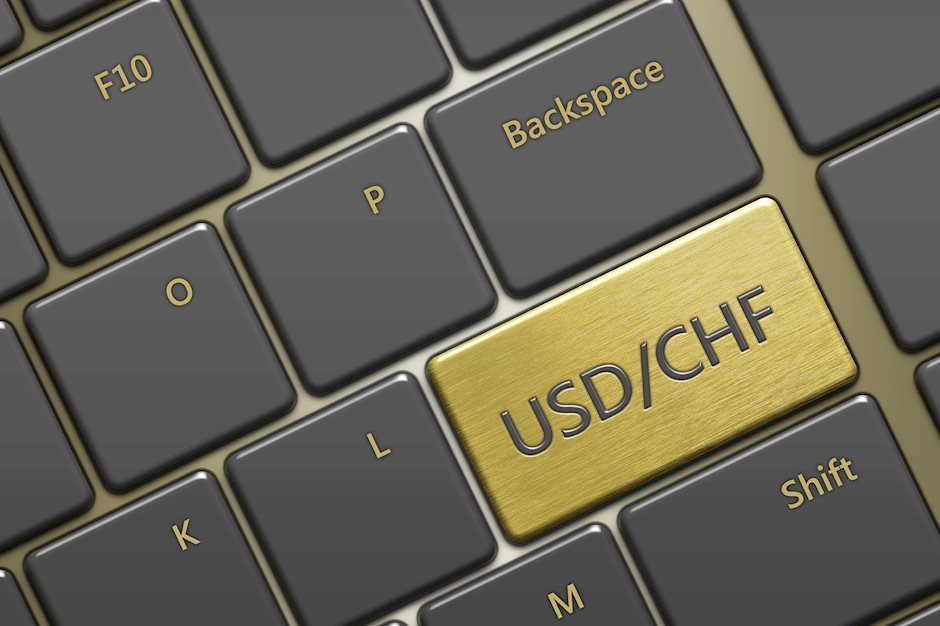USD/CHF advances to near 0.8900 as SNB unexpectedly cuts interest rates by 50 bps
- USD/CHF jumps to near 0.8900 as the SNB cuts its key borrowing rates by 50 bps to 0.5% against estimates of a 25 bps interest rate reduction.
- SNB Schlegel kept the option of negative interest rates on the table in his last commentary in November.
- An expected growth in the US inflation pushes Fed rate cut bets to the threshold.

The USD/CHF pair surges to a fresh two-week high near 0.8900 as Swiss Franc (CHF) dives after the Swiss National Bank (SNB) surprisingly reduces its key borrowing rates by 50 basis points (bps) to 0.5%. This is the fourth straight interest rate cut by the SNB in a row but first larger-than-usual. The SNB was anticipated to reduce interest rates but at a slower pace of 25 bps to 0.75%.
SNB’s rate-cut expectations were based on extremely dovish remarks from SNB Chairman Martin Schlegel at an event in Zurich in late November. "I want to emphasize that lower interest rates, plus negative interest rates, are not excluded from our toolbox," Schlegel said.
Schlegel chose dovish remarks for the interest rate guidance as inflationary pressures in the Swiss economy have remained in their desired range of 0%-2% since June 2023. The Annual Swiss Consumer Price Index (CPI) decelerated to 0.6% in October.
Meanwhile, the US Dollar (USD) trades slightly lower as traders have priced in 25 bps interest rate reduction by the Federal Reserve (Fed) to 4.25%-4.50% for the policy meeting on Wednesday. The US Dollar Index (DXY), which gauges Greenback’s value against six major currencies, edges lower to near 106.50.
Fed dovish bets strengthened after the release of the United States (US) Consumer Price Index (CPI) data for November, which showed a moderate growth in rental prices. Annual headline and core CPI – which strips off volatile food and energy prices – rose in line with estimates of 2.7% and 3.3%, respectively.
Swiss Franc FAQs
The Swiss Franc (CHF) is Switzerland’s official currency. It is among the top ten most traded currencies globally, reaching volumes that well exceed the size of the Swiss economy. Its value is determined by the broad market sentiment, the country’s economic health or action taken by the Swiss National Bank (SNB), among other factors. Between 2011 and 2015, the Swiss Franc was pegged to the Euro (EUR). The peg was abruptly removed, resulting in a more than 20% increase in the Franc’s value, causing a turmoil in markets. Even though the peg isn’t in force anymore, CHF fortunes tend to be highly correlated with the Euro ones due to the high dependency of the Swiss economy on the neighboring Eurozone.
The Swiss Franc (CHF) is considered a safe-haven asset, or a currency that investors tend to buy in times of market stress. This is due to the perceived status of Switzerland in the world: a stable economy, a strong export sector, big central bank reserves or a longstanding political stance towards neutrality in global conflicts make the country’s currency a good choice for investors fleeing from risks. Turbulent times are likely to strengthen CHF value against other currencies that are seen as more risky to invest in.
The Swiss National Bank (SNB) meets four times a year – once every quarter, less than other major central banks – to decide on monetary policy. The bank aims for an annual inflation rate of less than 2%. When inflation is above target or forecasted to be above target in the foreseeable future, the bank will attempt to tame price growth by raising its policy rate. Higher interest rates are generally positive for the Swiss Franc (CHF) as they lead to higher yields, making the country a more attractive place for investors. On the contrary, lower interest rates tend to weaken CHF.
Macroeconomic data releases in Switzerland are key to assessing the state of the economy and can impact the Swiss Franc’s (CHF) valuation. The Swiss economy is broadly stable, but any sudden change in economic growth, inflation, current account or the central bank’s currency reserves have the potential to trigger moves in CHF. Generally, high economic growth, low unemployment and high confidence are good for CHF. Conversely, if economic data points to weakening momentum, CHF is likely to depreciate.
As a small and open economy, Switzerland is heavily dependent on the health of the neighboring Eurozone economies. The broader European Union is Switzerland’s main economic partner and a key political ally, so macroeconomic and monetary policy stability in the Eurozone is essential for Switzerland and, thus, for the Swiss Franc (CHF). With such dependency, some models suggest that the correlation between the fortunes of the Euro (EUR) and the CHF is more than 90%, or close to perfect.
Author

Sagar Dua
FXStreet
Sagar Dua is associated with the financial markets from his college days. Along with pursuing post-graduation in Commerce in 2014, he started his markets training with chart analysis.

















